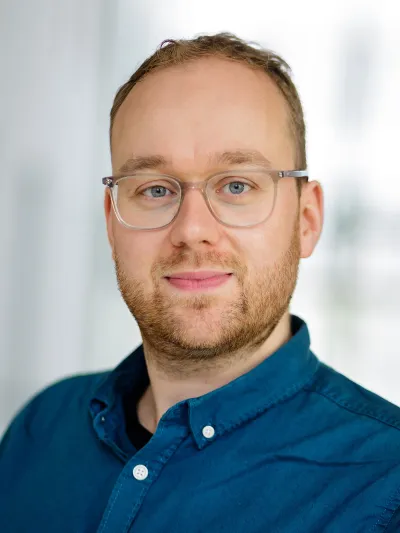Retrospective
Conference on Digital Transformation in Social Work

The practice-integrating dual-digital Bachelor's degree programme in Social Work (BASA Dual-Digital) at the University of Applied Sciences Potsdam held a conference entitled "Digital Transformation & Resistance in Social Work" on the 7th of February 2023. As part of the two profile lines of the university of applied sciences, "Forming Society" and "Digital Transformation – Urban Future", the afternoon focused on the influence and consequences of digital technologies on social work.
The starting point for the conference was a teaching research project that was conducted with the dual students of BASA Dual-Digital and whose research results were recently published under the title "The digital transformation of social services. A methodical-constructive study on digitalisation processes from the perspective of dual study beginners". BASA Dual-Digital thus presented an initial result in its own focus on increasing research into digital-transformative processes in social work in order to discuss this further with interested parties and stakeholders from academia and practice in its own research@BASAD² event series.
The conference was opened with words of welcome from Prof. Dr. Bernd-Udo Rinas, representative of the Brandenburg Ministry of Education, Youth and Sport, and Prof. Dr. Frank Früchtel, Dean of the Faculty of Social and Educational Sciences. Julius Späte, who led the teaching research project as an academic member of the BASA Dual-Digital course, not only presented the project and the results in his lecture entitled "Action and resistance in the context of digitalisation at social service providers", but also drew attention to the need to actively reflect on actions in the context of digitalisation processes and to always consider the resistance they can cause for other people. In the subsequent video contribution by all students involved in the research project, the guests were given direct insights into the project and the experiences they had during their practical work on digitalisation and recorded in research diaries.
Prof. Dr. Karsten Krauskopf, who moderated the conference, then led on to a panel discussion in which representatives from practice and academia discussed both the content presented and further developments with the guests. The panellists from the field, Peggy Stübing (Head of Children, Youth and Family Services of the Potsdam-Mittelmark district), Stefanie Kapala (Social Worker at the Potsdam-Mittelmark district social welfare office) and Lutz Küken (Managing Director of the INDEPENDENT LIVING Foundation Potsdam) discussed specific perspectives on the current opportunities, limitations and also resistance from their areas of work in the context of digitalisation. These were framed by the scientific views of Max Haberstroh (research assistant at the BTU Cottbus) and Julius Späte and in some cases also constructively provoked. The topic of algorithm-based decision-making programmes, i.e. artificial intelligence that can deliver results on child protection in social services on the basis of collected data, was discussed controversially.
Existing resistance in social work was particularly clearly and comprehensibly explained by those in favour and those against in terms of professional theory and ethics. Klara Schumann, who enriched the panel discussion as a student representative, emphasised that it is important to view digital technologies as a tool and to carefully examine when and for what purposes hardware and software solutions should be used in social work.
The conference opened up the complexity of the discourse on digital transformation in social work. However, more questions were asked than answered during the afternoon. Among other things, it remained unclear how professionals can acquire skills for an increasingly mediatised society or how digital networking between public and independent organisations can succeed, and much more. These topics and many other perspectives will be the subject of future events in the research@BASAD² series.
The conference was made possible and supported by the Institut für Fortbildung Forschung & Entwicklung e.V. at the University of Applied Sciences Potsdam. The recording of the opening lecture and the students' video contribution can be accessed via the following links:
Dual students report on the digital transformation of social services
